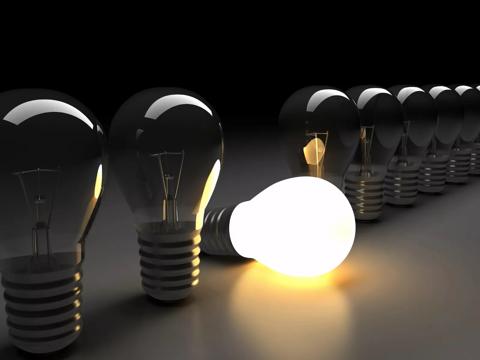Lamp vs. laser: 3 things you should know
読み終わるまでの時間:約3分

In the early days, lamps were the traditional go-to light source in the projection world. However, fifteen years ago, the introduction of solid-state projection light sources like lasers shook the industry. And although both technologies have their own merits, changing the light source in a projector from lamps to laser diodes brings with it many advantages for the professional AV market. So it’s high time to jump aboard the laser train. Why? Here’s why.
1. Lifetime
The lifetime of a projection light source is the number of hours the projector can run at full power before the brightness of the light source, and consequently also the projection quality, drops to an unacceptable level for further use. (That is, not taking into consideration the other parts of the projector of course.)
Also, if a lamp explodes, your projection is done. If one of the laser diodes fail, which is highly unlikely, you still have the others which will form an image on the screen.
2. CAPEX vs. OPEX
Let’s start this touchy subject by acknowledging the following: yes, the cost price of a laser projector is higher than the purchase price of a lamp projector. But you should think further than this initial investment. As you know by now, you will be able to enjoy the laser outcomes much longer. And don’t forget about the extra maintenance costs, higher electricity bills and other additional expenses related to lamp projection set-ups.
We’re not claiming laser projectors are maintenance free. Of course, you still need the occasional check-ups and upkeeps to clean fans, filters or lenses for maximum efficiency and performance. But the use of lasers does cut out the need for lamp replacements. Now, you might think the price of a replacement lamp isn’t the end of the world. Right. But take a laser projector with an operating lifespan of 25.000 hours, for instance, which will eliminate at least twelve lamp bulb changes. If you have an entire fleet of projectors, it quickly adds up to substantial savings in costs, and, equally as important, in time and labor.
Taking all this in consideration, there’s no denying that the total cost of ownership is much lower during the lifespan for a laser projector.
3.Sustainability
Coming back to that electricity bill, another important benefit of laser projectors is their power efficiency. Laser light engines create the exact colors that are needed with more focused energy and reduced heat dissipation. Needing less power for the same – or even a better and brighter – outcome, is great for your wallet, but also for your ecological footprint.
Defect laser engines are typically sent back to the factory for repair by a qualified technician. Lamp replacements can be done easily by the rental crew itself, but projector lamps can contain mercury or other hazardous waste materials which may cause serious environmental damage – and even health issues – if not dealt with properly. Burned-out lamps can’t just go in the trash but need to be disposed of by a specialized recycling center.
Conclusion
The advantages of laser projection are manifold. Lamp projectors are still OK for intermittent use in non-professional settings, but for high-demanding AV cases laser is the way to go. Choosing laser is improving your projection experience with quality, simplicity and reliability, while also significantly reducing your costs.
